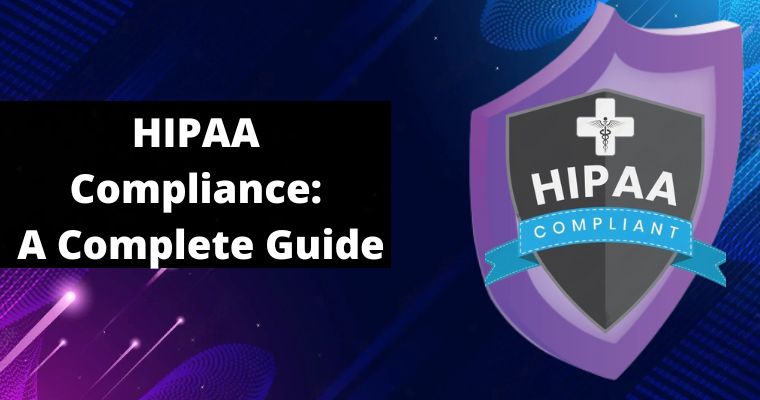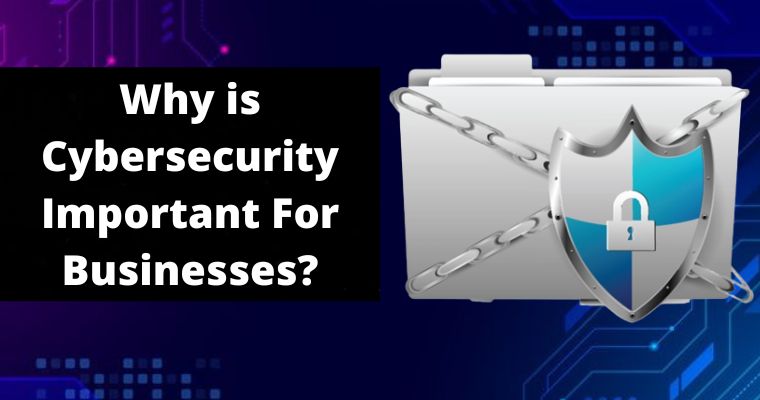Homeland Security is an authoritative definition for national security measures to bulwark the United States from the threat of violence.
The United States Department of Homeland Security, also recognized as the DHS, is a Cabinet department of the government whose major duties are in accordance with both protections against violence and aid during a natural disaster.
While the Department of Defense focuses on military actions and worldwide security influence, the Department of Homeland Security observes & guards the civilian sector and stops the entry of prohibited aliens across the border.
In an era of hyper-connectedness & a burgeoning worldwide cybercrime business, you can’t afford to hope you’ll just be lucky and avoid a positive attack. It’s important to start policies and procedures to minimalize risk and train employees on how to protect your business.
The basic types of criminal activity you need to guard against are:
- Theft of proprietary or sensitive business data that could be sold to rivals or other hackers,
- Setting up “ransomware” that locks you out of your individual data until you pay the cybercriminals’ demands,
- Nasty damage to your system, such as crashing your site to stop clients from accessing it (frequently referred to as a “denial-of-service attack,” under which hackers beat your site with data requests)
- Theft of employees’ personal information to ultimately taken from them.
Internal Threats
Building a protective strategy starts with knowing that, even with the top technical outside barriers in place, you could fall victim to a worker who goes rogue, or even joins your organization precisely with cybercrime as a goal.
Checking references & conducting background checks is similarly a decent idea.
In the same way, it’s normally prudent to contain a report in your worker handbook informing workers that their communications are stored in a backup system, & that you reserve the right to monitor and inspect their business computers & emails (sent and received) on your system.
When such monitoring systems are in place, caution or suspicious action will dictate when they must be ramped up.
Table of Contents
DHS Cybersecurity Training & Tips for Employees and IT Staff
It can also be beneficial to establish a policy encouraging workers to report any suspicious computer-based activities they perceive around them.
The biggest threat isn’t that workers might intentionally commit cybercrime, but that they might unintentionally open the door to outside cybercriminals.
That’s why the Department of Homeland Security (DHS) considers cybercrime serious enough to provide some tips for employers to pass along to their workers:
1. Read & abide by the organization’s Internet usage policy.
2. Make passwords difficult – use a combination of symbols, numbers, and letters (uppercase & lowercase).
3. Change passwords frequently (every 45 to 90 days).
4. Protect user names, passwords, or other computer or website access codes, even between coworkers.
5. Exercise caution when opening emails from unknown senders, & don’t open attachments or links from unverifiable sources.
6. Don’t connect or link any personal software or hardware to the organization’s network or hardware without permission from the IT section.
7. Make electronic & physical backups or copies of dangerous work.
8. Report all doubtful or unusual computer problems to the IT section.
Workers that follow these steps truly can serve as an added layer of protection against cyberattacks.
It’s frequently a respectable idea for businesses to guard their computer systems further by purchasing cybercrime insurance. Alone, this won’t stop the victimization, but it can offset about of the financial damage in case of a positive attack.
In addition, most insurers perform a severe risk assessment before issuing a policy & setting premiums. The results of such an assessment can be fairly eye-opening for industry owners.
If you decide against purchasing insurance, it might be beneficial to have an advisor conduct a cybercrime exposure risk valuation anyway.
The growth, ubiquity & high cost of cybercrime has spawned a big business of cybersecurity referring firms.
And, unless your business already has a tough IT staff with proficiency in cyber-risk mitigation, you’ll possibly save time and cash by engaging a third-party vendor.
Invite Fresh Talent and Provide DHS Cybersecurity Internship
Department of Homeland Security has embraced the task by applying an extensive range of initiatives to attract quality talent. There has been work completed across the board, but a noteworthy amount of change has occurred in the private area.
The fight to fill the worldwide cyber workforce shortage lasts to be a cooperative approach. Department of Homeland Security (DHS) has recognized the need and applied programs such as:
- Diversity hiring creativities
- Mentoring programs
- Pay increases
- Flexible working settings
To safeguard our nation’s critical infrastructure from cyberattacks, the federal government has newly launched a novel personnel system, the DHS Cybersecurity Talent Management System, to reduce some earlier barriers to public-sector employment recruiting.
The inventiveness reduces the steps essential to complete an application while allowing applicants to contribute to skills-based calculations.
DHS Cybersecurity Assessment
First, use assessments that test every applicant’s skills and expertise. In most job applications, people present their actions rather than their actual skills.
The DHS cybersecurity hiring program uses simulations based on the precise position and tasks to check the applicant’s performance.
Throughout the procedure, the applicants undergo screenings that prove their skills in areas such as incident response & network forensics.
The tests in the CTMS are based on specific skills presently required at the DHS. They will evolve as the proficiency required to protect against attacks change.
Increase Your Pay Scale
As part of the platform, the DHS increased its pay scales. By improving salaries, the DHS hopes to invite new talent to its section. They also hope it will help maintain existing talent that might have otherwise left for the private sector.
NGOs must consider the parallel approach when deciding their pay rates. By taking into account the business impact of an attack, leaders can express how significant hiring and retaining experienced cybersecurity workers is.
When setting pay rates, focus on the risk if the positions stay unfilled. Cautiously monitor salary ranges at other businesses hiring for similar positions.
DHS Cybersecurity Talent Management System
The recently launched Cybersecurity Talent Management System (CTMS) has been in the frame since 2014 when regulation first gave the DHS the power to set up a hiring system that is excused from existing rules around talent management for the central government.
The program also comes as the U.S. administration amps up its efforts to defend against high-profile cyberattacks, counting ransomware attacks on critical organizations.
Requesting for four-year degrees can limit the hiring of diminished groups. In its place, the CTMS focuses on competencies and certifications.
The CTMS looks for these kinds of identifications and considers them when judging applicants. This national security organization can also utilize the tests and simulations in the system to replace proficiency with the four-year degrees necessary before.
Other private companies can take a similar approach. For instance, IBM’s Digital Badge program helps educate existing employees seeking to move into the cybersecurity field.
It also recommends external applicants must complete certifications & badges in place of needing a four-year degree. That way, the pool of competent applicants widens and the employer can lessen open positions.
Other careers comprise cybersecurity, which the government has declared the maximum pressing threat of the future, and acquisitions, which are accountable for obtaining the funding for these significant tasks.
Legal careers are also accessible. The General Counsel answers to the Secretary & is both the chief legal consultant & the chief legal officer for the DHS.
They are a full-service legal team who makes sure all activities of the Department of Homeland security are fulfilled with the letter of the law.
They should craft the authorized precedent that shapes policies influencing the most significant matters facing our nation today, from violence to emergency response to border safety & the all-important counterterrorism.
DHS Cybersecurity Lessons
Removing barriers to occupation, such as the requirement of a four-year degree, is also a matter of letting people from different backgrounds in. This means, that the DHS is working to improve the range for underrepresented groups.
In addition, the DHS Cybersecurity assessment which focused on appointing cybersecurity workers included targeted outreach to underserved communities & communities of shade.
The program surpassed its objective by 50% by hiring & onboarding 293 cyber workers. At the end of the sprint, the DHS also had an extra 500 tentative professional offers pending.
The DHS is also working on setting up a DHS Intelligence & Cybersecurity Diversity Fellowship Program for qualified college scholars. That comprises historically Black colleges & universities and minority-serving organizations.
It invites scholars to a paid cybersecurity placement at the DHS. Scholars who complete the program will be presented with occupations in DHS cybersecurity.
Programs such as this fellowship aid students from underserved communities find jobs and offer incentives for going into a government cybersecurity occupation.
Other employers can make parallel programs by partnering with local universities & targeting different students.
DHS Cybersecurity Advisors (CSAS)
Cyber Security Advisors (CSAs) are locally positioned DHS workers who direct coordination, outreach, and local support to protect cyber components crucial to the sustainability, preparedness, and safety of U.S. critical infrastructure & state, local, regional, and tribal (SLTT) governments.
CSAs provide instant and sustained assistance to organize and defend SLTT and private entities. They boost the cybersecurity preparedness, risk mitigation, and incident answer capabilities of these entities & bring them into closer coordination with the central government.
CSAs signify a front-line approach and endorse the resilience of key cyber infrastructures in the United States & its territories.
Originality and up-leveling skills help build cybersecurity aptitude
A big part of a people-first environment is focusing on expert growth. According to a Reuters report, expert growth, along with learning different things & solving innovative challenges, are top incentives recognized by IT professionals.
Other careers comprise cybersecurity, which the government has declared the maximum pressing threat of the future, and acquisitions, which are accountable for obtaining the funding for these significant tasks. Legal careers are also accessible.
The General Counsel answers to the Secretary & is both the chief legal consultant & the chief legal officer for the DHS. They are a full-service legal team who makes sure all activities of the Department of Homeland security are fulfilled with the letter of the law.
They should craft the authorized precedent that shapes policies influencing the most significant matters facing our nation today, from violence to emergency response to border safety & the all-important counterterrorism.


